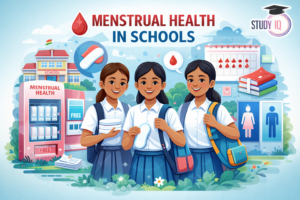Table of Contents
The recently released Climate Inequality Report 2025, co-authored by Lucas Chancel and Cornelia Mohren of the World Inequality Lab, has exposed a critical yet overlooked aspect of global warming — the inequality of responsibility for climate change.
The report reveals that wealthy individuals contribute far more to global emissions through their capital ownership than through their direct consumption. This finding shifts the focus from lifestyle-based emissions to the ownership of high-emitting assets, urging policymakers to rethink how climate justice and economic inequality are addressed together.
Key Findings: The Rich Own the Climate Crisis
1. Wealth-Based Emissions Exceed Consumption-Based Emissions
-
The top 1% of the world’s population is responsible for 15% of global consumption-based emissions but a staggering 41% of global emissions linked to private capital ownership.
-
This means that the climate crisis is not just a result of what the rich consume but what they own — fossil fuel companies, heavy industries, and other carbon-intensive investments.
If current patterns continue, the report warns, the global top 1% could control 46% of the world’s wealth by 2050, up from 38.5% today, as they dominate future climate-related investments and profits.
2. The Ownership-Based Approach: A Truer Measure of Inequality
The report distinguishes between two ways of calculating emissions:
-
Consumption-Based Approach: Measures the emissions from goods and services people use (e.g., travel, food, luxury items).
-
Ownership-Based Approach: Tracks emissions from investments and assets people own — such as shares in oil companies or energy firms.
Under the ownership-based approach, the carbon footprint of the wealthy skyrockets:
| Country | Top 1% Emission Share (Consumption-Based) | Top 1% Emission Share (Ownership-Based) |
|---|---|---|
| France | 3% | 44% |
| Germany | 2% | 45% |
| United States | 6% | 43% |
This means that per capita, a person in the global top 1% emits 75 times more than the bottom 50% under consumption metrics — and 680 times more under ownership metrics.
3. Climate Change as a Capital Challenge
According to the report, titled “Climate Change: A Capital Challenge — Why Climate Policy Must Tackle Ownership”, climate change is as much an economic problem as it is an environmental one.
Wealthy individuals act as shareholders and financiers of high-emitting industries, profiting from the very systems that accelerate global warming. Without corrective action, climate inequality could worsen wealth inequality, as the rich dominate investments in green technologies and renewable infrastructure.
4. Policy Recommendations
To bridge this widening gap, the Climate Inequality Report 2025 proposes bold policy interventions that target emissions from wealth and capital, not just consumption.
a) Carbon-Adjusted Wealth Tax
-
Introduce a tax on the carbon content of wealth and financial assets to discourage high-emission investments.
-
For instance, a €150 per tonne carbon tax on assets could generate €36 billion in France, €74 billion in Germany, and $534 billion in the US.
-
This tax would make the wealthy accountable for the environmental impact of their investments, while funding green transitions and low-carbon public infrastructure.
b) Ban on New Fossil Fuel Investments
-
The report urges a global ban on new fossil fuel exploration or investment projects, to prevent further escalation of emissions.
-
Instead, capital should be redirected to renewable energy, public transport, and green technology.
c) Public Investment and Ownership
-
Governments should establish sovereign green investment funds to promote public ownership of renewable assets, ensuring that climate benefits are widely shared rather than monopolized by private investors.
-
Publicly-owned low-carbon assets can rebuild productive state capacity, create green jobs, and foster long-term sustainability.
5. A More Progressive Alternative to Carbon Taxes
Traditional carbon taxes often burden consumers, especially the poor, who have limited alternatives to fossil fuels.
In contrast, a carbon-adjusted wealth tax targets those with investment flexibility, allowing them to shift their capital toward cleaner, sustainable industries.
This approach is more progressive, addressing emissions at their financial source rather than at the point of use.
6. Inequality in Climate Impact
The report also highlights that the poorest populations bear the highest cost of climate change while contributing the least to it.
-
They face floods, droughts, food insecurity, and displacement without adequate resources for adaptation.
-
Meanwhile, the wealthy can insulate themselves and profit from green investments, widening both private and public inequality.
Without global redistribution mechanisms, the ownership of green assets could become as unequal as that of fossil assets — creating a “green divide” in the world economy.
7. The Urgency of Action
According to the report, the global carbon budget for limiting warming to 1.5°C may be exhausted within three years, making immediate and equitable action essential.
Publicly-funded low-carbon infrastructure and equitable climate finance can help bridge the inequality gap and accelerate the energy transition before it’s too late.
Conclusion
The Climate Inequality Report 2025 reframes the climate crisis as a wealth problem, revealing that ownership, not just consumption, drives global emissions. Addressing the crisis demands progressive taxation on carbon-intensive wealth, bans on fossil fuel investments, and publicly-owned green assets.
Only by confronting the climate-capital nexus can the world achieve a just and sustainable transition — where both the planet and its people thrive.


 New Rules for IPS Officers: Modified Nor...
New Rules for IPS Officers: Modified Nor...
 Menstrual Health in Schools: Why It Is I...
Menstrual Health in Schools: Why It Is I...
 Green Steel in India: How It Can Help Ac...
Green Steel in India: How It Can Help Ac...

























